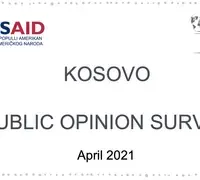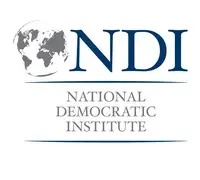Resources


NDI Kosovo Public Opinion Poll April 2021
In April 2021, Kosovo citizens were more optimistic than in the fall about the direction of the country. Economic recovery from the Covid-19 pandemic and vaccination against the virus joined longstanding concerns related to unemployment and corruption. Concerns about the safety of the vaccine were high, and belief in false Covid-19 narratives remained, just before Kosovo began its broader national vaccination campaign.

North Macedonia Public Opinion Research: Democracy, Geopolitics, Disinformation
NORTH MACEDONIA
CITIZENS REGISTER CONCERNS OVER DEMOCRACY, EUROPEAN INTEGRATION, ECONOMIC RECOVERY
Challenges include COVID-19, trust in government, and foreign illiberal influence

NDI Poll: Opportunities and Challenges Facing Ukraine’s Democratic Transition
The National Democratic Institute (NDI) has released the results of its latest national telephone survey of Ukrainians, its second during the COVID-19 pandemic. According to the study, completed in December 2020, public opinion in Ukraine is heavily affected by the pandemic and its implications on public health, the economy and Ukrainians’ personal wellbeing. Although challenges abound, the vast majority of Ukrainians remain committed to their country’s democratic future.

NDI POLL: ECONOMIC AND HEALTH CONCERNS REMAIN TOP PRIORITIES; CHALLENGES AHEAD TO BUILD CONFIDENCE IN COVID-19 VACCINATION PROGRAM
TBILISI – Poll results released today by the National Democratic Institute (NDI or the Institute) and CRRC Georgia find that a year into the coronavirus pandemic, Georgians remain concerned about the state of the economy and healthcare. While the public continues to credit the government with managing the pandemic effectively (68 percent, up from 60 percent in December 2020), they remain skeptical of forthcoming vaccinations.

The Impact of COVID-19 on Hungary's Roma Communities
The National Democratic Institute (NDI) and the locally-based research firm that focuses on the Roma community Institute conducted polling and focus group research in Hungary from May to August 2020 to gauge and elucidate the toll the COVID-19 pandemic was taking on the Roma community in Hungary, specifically. The research was conducted across 27 settlements spanning nine counties across the country.
